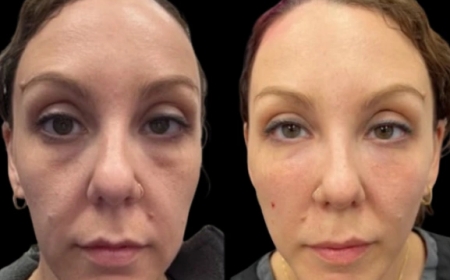AI Applications in Healthcare: Opportunities, Challenges, and Use Cases
Artificial Intelligence technologiesare taking the world by storm. In the healthcare industry, especially, AI is making new strides with every passing year. A decade ago, there were very few who could think about technology assisting medical professionals in diagnosing, treating, and managing patient care. But today, various innovative AI applications in healthcare are opening the doors to newer avenues where precise and efficient, and cost-effective workflows have become the key factors.
Whether you are from the medical field or otherwise, remember, AI in healthcare is no longer simply a trend. It is fast becoming a necessity. What are the opportunities, challenges, and real-world scenarios of AI applications in healthcare? Heres a brief.
Artificial Intelligence Technologies: Opportunities
There is no mistaking the kind of unique opportunities the field of AI offers to the healthcare industry. These opportunities exist because of one crucial factor - AI can mine countless data points and analyze humongous amounts of data, and that too at almost lightning speed.
Take, for instance, the capability of AI tools and machine learning in the field of disease diagnosis. These technologies can detect diseases like cancer or other chronic diseases like Alzheimers with pinpoint accuracy and faster than ever before.
Another big opportunity forAI applications in healthcareexists in personalized medicine. This is a growing area of interest where AI analyzes the genetic information of the patient to design treatment plans that are specifically meant for individual patients. These plans are comparatively more effective than generic treatment, with reduced chances of side effects and other reactions.
Artificial Intelligence Technologies: Real-World Use Cases
- Electronic Health Records (EHRs) are one of the biggest use cases of artificial intelligence technologiesin healthcare. Patient records are updated via digital intake forms.
- Another growing area of AI use in the real world is sending alerts and reminders to patients about their appointments and prescriptions.
- To reduce waste and to avoid stocking-related issues, many healthcare settings are using AI for tracking and reordering medical supplies.
- In the field of telemedicine and virtual patient care, it is AI applications in healthcareassist with virtual consultations, send reminders, automate schedules, and remotely monitor patient care.
- AI has also helped in automating billing, which, in turn, positively impacts the revenue cycle with faster patient onboarding, effective reclaiming care costs, and more.
Artificial Intelligence Technologies: Challenges
There are hurdles in adopting AI. Here are the top ones -
- Data privacy is a concern. Since AI can access vast datasets, ample care needs to be taken for ethical and legal aspects.
Bias in AI algorithms is another concern. Due to the lack of diversity-related data, there is a chance of skewed results.
- Integration problems are common and need to be addressed to minimize workflow disruptions.
AI applications in healthcare are adding new dimensions to the industry, where patient care is the top focus. Yes, there are challenges, but the right mindset can take care of these concerns.

































